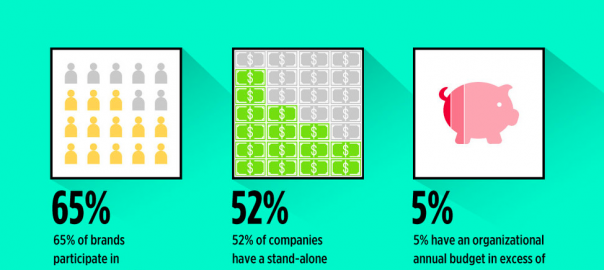
A large part of what my team does at BuzzPlant is research.
Where are our target demographics going?
What types of messages resonate?
What gets engagement?
What works for brand exposure? What works for sales?
… and so on.
Digital marketing is in no way limited to social media, websites, and email! But today, we’ll focus on just one of the lesser-used digital strategies: the new golden child of content marketing, influencer marketing, which Forbes contributor Kyle Wong defines as, “a form of marketing that identifies and targets individuals with influence over potential buyers.”
To be clear, influencer marketing isn’t exactly new. Celebrity endorsements and athletic sponsorships have been around for over half a century. But what is new is the use of non-celebrity influencers, who are, still every bit as effective – if not more – at generating sales.
Consumers Trust Influencers More Than Brands
As I remarked in my last blog post, nobody likes being sold to. And branded content? It often comes across as sales-y or biased in the consumer’s mind. Naturally, wary customers are going to turn to independent reviews (which can actually make your brand look more authentic – even if the reviews are negative).
A new infographic from The Shelf reports on this interesting relationship between consumers, brands, and perceived authenticity on social media and the web:
- 92% of consumers trust recommendations from other people (even someone they don’t know) over branded content.
- 70% of consumers reported online customer reviews as the second-most trusted source.
What if you could take some control in this powerful channel and strengthen your brand through online reviews? You’ve just tapped into influencer marketing. According to The Shelf, sharing your content through influencers in your industry increases conversion by at least a 3x-10x higher rate.
Are Brands Actively Using Influencer Marketing?
Yes, many are! In fact…
- 65% of brands participate in influencer marketing.
- 52% of companies have a stand-alone Sponsored Social budget for their brand.
- 5% have an organization annual budget in excess of $ 5M, and 25% have an annual budget of $ 500K.
What Do You Look For In Choosing An Influence Marketer?
Popularity is good, but even more important is (1) industry relevance, (2) quality content, (3) and a strong personality. Influence marketers help in a variety of ways, by creating brand awareness, educating customers, boosting your SEO, creating a social following, building trust and authenticity in your social media, and jumpstarting user-generated content.
Also, influencer marketing has a ripple effect, according to The Shelf:
- 88% of social influencers verbally tell a friend about brands that sponsor them.
- 72% share additional posts about their sponsors for free, outside of their contractual agreement.
- 77% say they’re more likely to purchase from brands that sponsor them.
Would You Use Influencer Marketing?
Why or why not? Check out the full infographic below, and then let me know what you think in the comment section.
Courtesy of: The Shelf
(231)
Report Post






